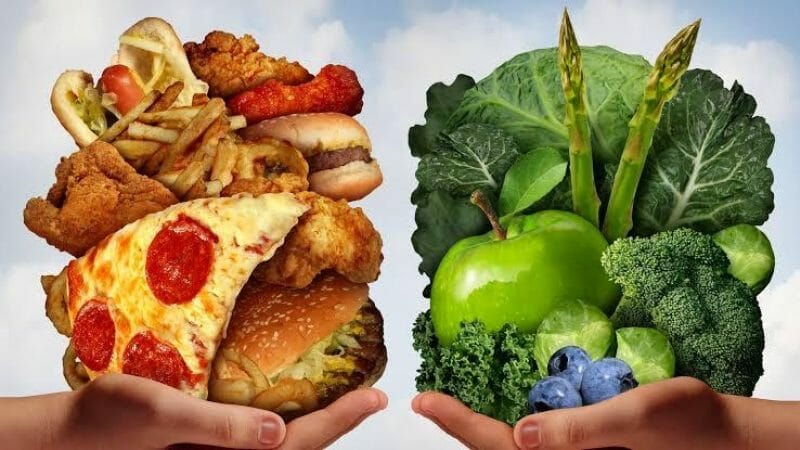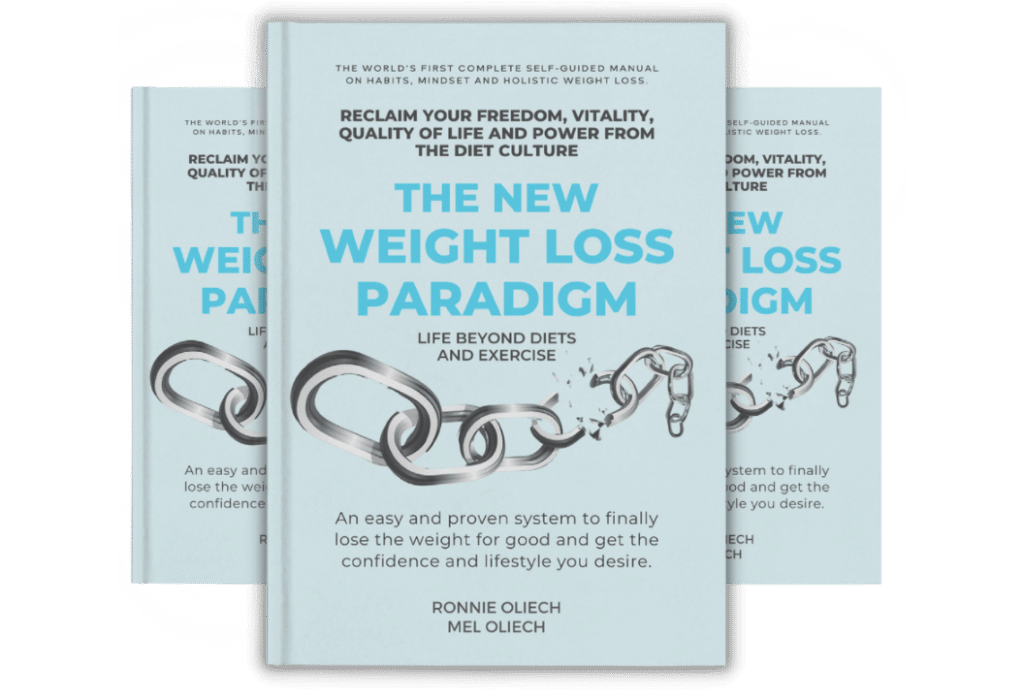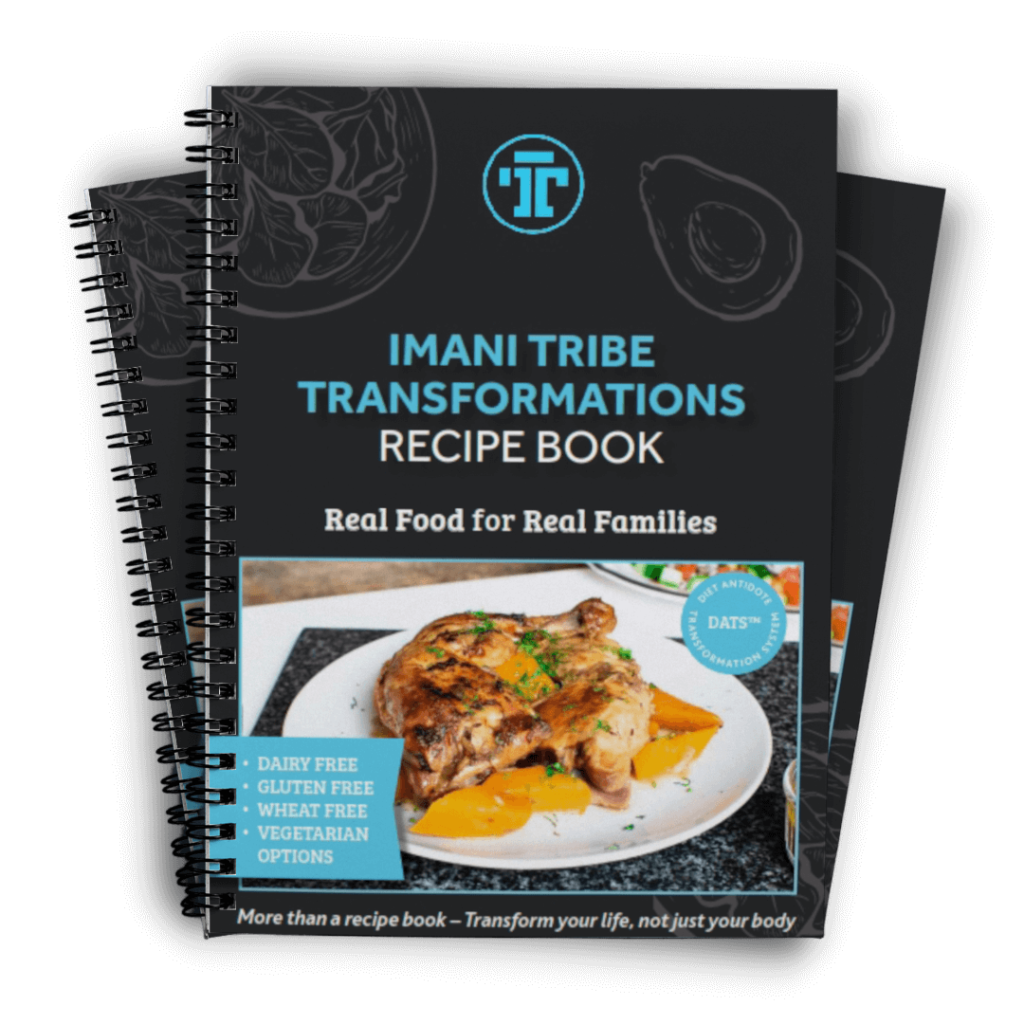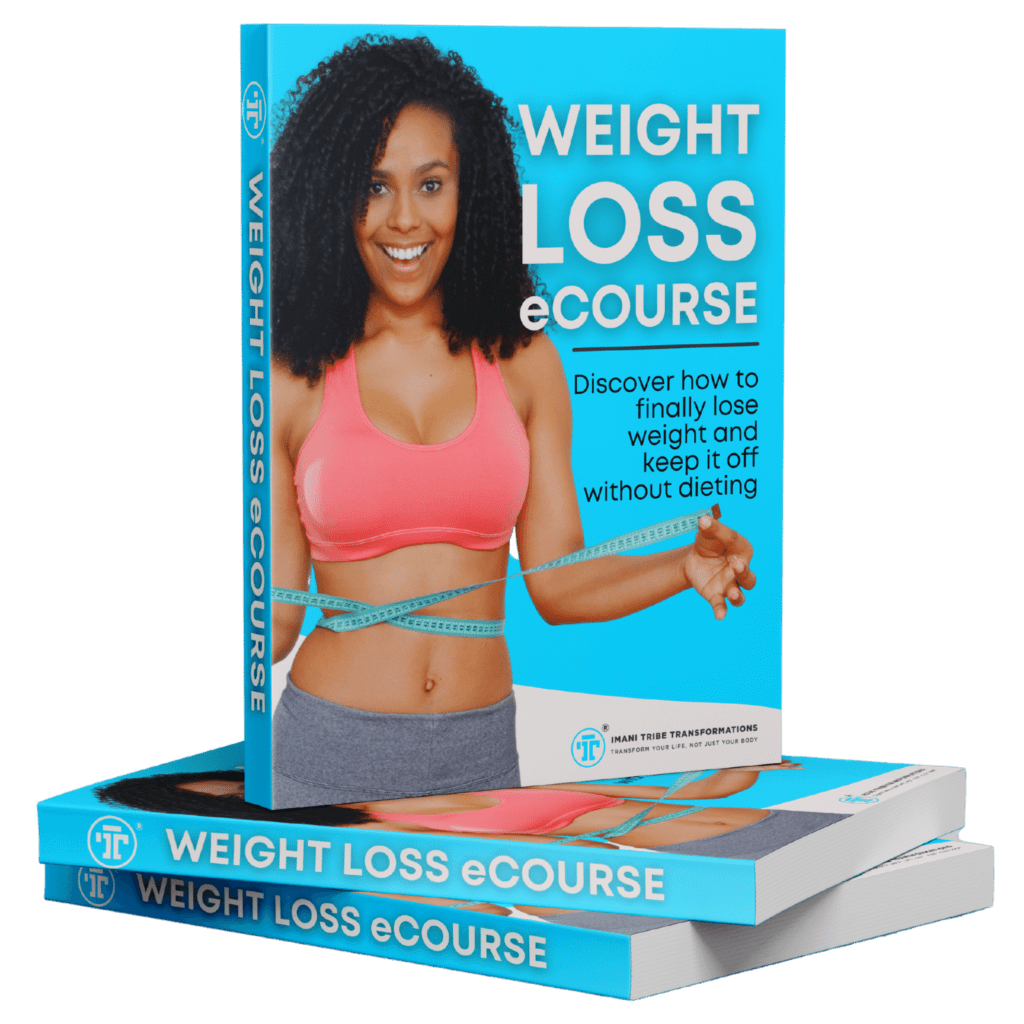If you’re trying to lose weight, you probably want to know what the good foods for weight loss are, and what the bad ones are, right?
If you’ve been following us for a while, you may have read some of our other food-related blogs, including Foods to eat when trying to lose weight, Why the Aussie BBQ is worse than junk food, and How to improve your nutrition to lose weight quickly. These blogs have given you an idea on how important nutrition is when you want to lose weight. But what foods are good and bad?
Well, we’re about to tell you something about food that may shock you.
There are no ‘good’ or ‘bad’ foods.
That’s right. No food is bad for you.
Why are foods classified as ‘good’ and ‘bad’?
The labelling of food as ‘good’ or ‘bad’ is a concept born from diet culture. For decades, the diet industry has put some foods on a pedestal, and demonised others. Whether food falls in the ‘good’ or ‘bad’ category often depends upon the diet itself and will vary from diet to diet.
For example, diets that focus on low calories tend to label foods like nuts or avocado as ‘bad’ due to their high fat content, despite the nutritional benefits of including these healthy fats in your diet. Other diets that focus on ‘low-carb’ or ‘no carb’, demonise foods like bread and pasta, and wholegrains including quinoa and brown rice. Other diets that focus on eating moderate amounts of protein and high levels of fat tend to vilify starchy vegetables, but encourage the consumption of oils, butter and cream.
And then of course there’s all those eating plans in between that label things like dairy, sugar and gluten as ‘bad’, depending upon the philosophy of the diet. It seems that every week, there is another ‘miracle food’ or a ‘super food’ that we absolutely must include in our diet, and another one that we must remove. Is it any wonder we’re confused about what to eat to lose weight?
The truth is that food has no moral compass. There is no inherent ‘goodness’ or ‘badness’ within food’s chemical structure that makes it ‘good’ or ‘bad’. Food is just food.
What does classifying food do?
Classifying food as ‘bad or ‘good’ is a sign of the diet mindset and can cause us to have an unhealthy, obsessive relationship with food. While it may seem helpful to categorise foods into ‘good’ and ‘bad’ when we want to lose weight, doing so actually does more harm than good.
Firstly, it causes us to question what we eat and worry if it meets the arbitrary standards of being ‘good’. This causes us to feel as if we continually need to justify what we eat, which can then lead to feeling shame around certain foods, or even feel ashamed about eating. Feeling ashamed causes us to restrict the so-called ‘bad’ foods. But this only leads to emotional eating. Our body registers food restriction as ‘starvation’ and kicks in physiological processes to stop us from starving to death. Our body’s normal response to food restriction includes increased appetite and cravings for certain foods — usually the ones we’ve been restricting.
Labelling food also causes us to feel stressed when we can’t control the food we have access to (e.g. at parties or restaurants). This can lead to us restricting food when we’re out with other people, and then bingeing when we get home.
Finally, believing that food is either ‘good’ or ‘bad’ can have repercussions on our own self-worth and self-esteem, as we label ourselves ‘good’ or ‘bad’, or even ‘naughty’, based on what we have eaten. The truth is, our self-worth is not tied to the food you do or don’t eat. Eating a salad for example, doesn’t make you more worthy than eating a donut.
Signs you label food
If you can recognise any of the following behaviours, then there’s a good chance that you label foods as ‘good’ and ‘bad’.
- feeling guilty around certain foods
- thinking that some foods are better than others
- judging others based on what they eat
- feeling ashamed to eat in public, or with other people
- unable to enjoy ‘treat’ foods when celebrating special occasions
- having a list of foods that you avoid, which are not due to medical reasons
- not being able to enjoy your favourite foods, or treat foods without guilt
- feeling like you need to exercise or restrict food to ‘make up’ for what you’ve eaten
- labelling yourself as ‘bad’ or ‘naughty’ for eating a particular food
- having difficulty controlling portions or amounts of certain foods
- avoiding eating particular foods in front of other people
- feeling better about yourself when you eat ‘diet’ foods.
Why do you feel guilty and ashamed?
Eating food isn’t a problem. The problem is eating food for the wrong reason. For example, many people feel sad, lonely and empty inside. It’s very common for us to turn to things like alcohol, sex, retail therapy, or food, in an attempt to fill the void. While this may make us feel happier for a short time, it doesn’t fix our problem of feeling sad and lonely. Once the short-term pleasure has passed, we’re often left feeling guilty and ashamed of our actions. It’s not the act of eating that we feel guilty about. It’s the reason why we ate what we did, that causes the guilt.
Guilt and shame around food is usually due to two reasons:
The diet industry makes you feel this way
As we have discussed, diet culture has labelled foods as ‘good’ and ‘bad’ and makes you feel that unless you follow their rigid rules and restrictions, you’ll never lose weight, and you’ll never be worthy or good enough. They make you feel that if you stray from their rules and eat something that’s not on the plan (e.g. chocolate, wine, cake or chips), that you’re bad or naughty. Eating plans that include ‘cheat’ meals are great at making you feel bad about your eating — like you’re a cheat if you don’t stick to the rules 100% of the time. And we all know that cheats are bad! But the reason that ‘cheat’ meals are built into these plans is because they’re not sustainable in the long-term! If you’ve been following diets for a while, you’ll be familiar with the various rules and regulations that accompany these eating plans (e.g. don’t eat sugar, don’t eat carbs, starve yourself for 8 hours, etc.), and how they manipulate you into feeling guilty for not following these ridiculous rules.
You’re eating for the wrong reason
The other reason you feel guilty for eating certain foods is the reason why you ate it. You see, what you eat isn’t the problem, it’s why you ate it.
For example, there’s nothing wrong with eating ice-cream for dessert with the family. However, sitting on the couch by yourself and eating an entire tub of ice-cream because you feel sad and lonely is problematic. Similarly, there’s nothing wrong with not wanting to order a particular food on a restaurant menu. But there is a problem if you come home and binge, to make up for not eating when you were out.
As you can see, it’s not the act of eating, or even what you eat (or don’t eat) that’s the problem, it’s the reason behind why you’re eating this way that needs addressing.
In the examples above, the person who is eating a tub of ice-cream on the couch probably needs to learn better ways to deal with their emotions, rather than being told not to eat ice-cream. While on the other hand, the person who eats very little when going out to dinner, may need to learn how to feel free around food, rather than being told to eat when out, and not to binge eat when they come home.
How to get over your fear of food
If you’ve been dieting and restricting food for years, or even following conflicting advice about what is ‘good’ and what is ‘bad’, it can be hard to get over your fear of food. After all, diet culture has told us that if you eat the wrong thing or too much of it, then you’ll gain weight!
While food does influence our weight and body shape, it’s worth remembering that it only accounts for 12% of your daily metabolic rate. The biggest influence on our metabolism is our muscle mass, which accounts for 66%. To understand how important muscle is for weight loss, be sure to read our blog “I don’t want to get bulky”: 8 reasons why muscle is your friend.
The diet industry has taught us that controlling and restricting our food is the only way we’ll lose weight. But food is much more than a way to control our weight.
Understand that all eating is emotional
Diet culture has led us to believe that if you engage in emotional eating, you’re bad. Of course, covering up your feelings with food isn’t healthy and nor will it help you lose weight. But when it comes to food choices, not all of them will be based on nutrition, and that’s okay. Sometimes we eat food because it’s delicious. Sometimes we eat food because we’re celebrating. And sometimes we eat food because we have a physical craving for it. Accepting that we eat food for different reasons and that all these reasons are okay, will help you drop the guilt you feel when you eat certain foods.
Understand that food has a purpose
While all foods are morally equivalent, there are foods that are more nutritious than others. That doesn’t necessarily make them better than foods that are less nutritious. It just means they have more nutrients and may serve a different purpose. For example, if we asked you what was the ‘better’ option — fruit salad, or a burger with fries — what would you say?
Most people with a diet mindset would choose the fruit salad because it was low in calories and fat, was unprocessed and fit better into a ‘diet-based’ eating plan. But what if you were taking a road trip and you had no food with you? Which would be the better option to choose when you stopped off for lunch? What would help keep you full and satisfied, so you wouldn’t be feeling hungry within an hour? Of course, the burger and fries would, because it contains carbs and protein which provide you with energy and will keep you feeling fuller for longer. But if you were at the beach on a scorching hot day, the fruit salad might be the better option in that situation as it would be cooling, refreshing and contain water to help hydrate you.
You see, all food has a purpose. High-energy carbohydrates like pasta or rice provide athletes with the energy they need to perform in their chosen sport. They also help us prepare and recover from our training sessions. On the other hand, toast with a scrape of vegemite, or even a bowl of jelly, can provide a little sustenance for someone who is recovering from a bout of gastro. In these examples, jelly would be a terrible choice for an athlete, while a big bowl of pasta would be a terrible choice for someone recovering from gastro.
Food choices should be based on what purpose you want it to serve, not on whether it fits in with the rules of a particular diet.
Focus on food’s nutritional value
Another way to get over your fear and guilt around food is to focus on its nutritional value. In order for our body to burn fat and lose weight, it needs to function properly. And for it to function properly, it needs to be fed optimal nutrition. Eating diet foods, meal replacement bars, or fasting doesn’t provide our body with the various nutrients it body needs. Our body needs a wide range of vitamins and minerals in order for it to work properly and perform its many functions. We also need protein for muscle growth and repair, carbs for energy, and essential fats to help support cell growth, among other things. Start feeding your body the nutrition it craves, and you’ll have more energy, will be fuller for longer, and your body will begin to function better, and burn fat more efficiently. You’ll also notice that that you won’t be craving as many ‘treat’ foods.
Plan your treats
Speaking of treats, it’s important that you make room in your eating plan to enjoy them. Life is far too short to go around feeling miserable because you’re not enjoying what you’re eating. And research shows that those people who enjoy their favourite foods in moderation (including alcohol and chocolate!), actually have better weight loss results. This is because making room for them reduces binge and emotional eating. Those people who allow themselves treats are also more relaxed around food. And as we know, stress is one of the biggest metabolic blockers that will sabotage your weight loss, no matter how perfect your eating and exercise plan is.
Learn to fall in love with food…without the guilt
Would you like to finally feel free around food — no matter what it was?
Would you like to be able to eat a piece of cake at a birthday party without feeling guilty, or order what you really want to eat from the menu, instead of what will fit best into your ‘diet plan’? Can you imagine eating peanut butter on toast without worrying about the fat content, or worrying that you haven’t ticked a box on your prescribed eating plan? Maybe you want to go out for ice-cream with the family and not feel ashamed?
The good news is that you can!
We know how hard it is to break free from the fear, guilt and shame you feel around food that diet culture has created for you. But we’ve helped many people similar to you, finally feel guilt-free around food. We’ve helped people who were once afraid to eat certain types of food, now order them freely off a menu, without any more worry or guilt. We’ve helped many people drop the labels they’ve placed on food, and we’ve helped people stop feeling ‘naughty’ for eating particular foods.
If you’re ready to join them, we’re ready to help. Through our personalised, structured program, we can provide you with the correct action steps to help you break free from feeling guilty around food, so you can finally drop the diets, enjoy your favourite foods, and start building a body that will burn fat. We can help you develop better habits, and better ways to deal with your emotions, so you can finally stop the emotional eating that constantly sabotages your efforts. In short, we can help you finally feel free around food, and empower you to make the best choices, according to your goals and real-life situations.
And if you’re looking for tasty, nutritious, family-friendly recipes, why not purchase our Recipe Book?


















